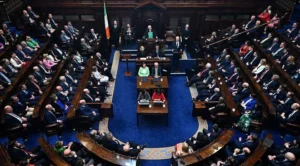 Taking into account the popularity of lotteries among British customers, the UK Gambling Commission (UKGC) issued a number of compliance recommendations aimed at all operators that run a licensed society lottery.
Taking into account the popularity of lotteries among British customers, the UK Gambling Commission (UKGC) issued a number of compliance recommendations aimed at all operators that run a licensed society lottery.
In the light of the increasing popularity of house raffles, the UK Gambling Commission warned that organisers of all kinds of lotteries on the territory of the UK must comply with the gambling legislation. Back in August, the country’s gambling regulatory authority urged organisers of house raffles to make sure they are not breaking any rules and emphasized on the fact that strict measures will be imposed on the ones who are not organised in line with the existing legislation and regulatory framework.
Now, the UK Gambling Commission issued a number of tips in order to make it easier for lottery organisers to comply with the rules. It highlighted the fact that the lottery sector is quite different from other gambling sectors such as bingo or betting and reminded that for the time being, lotteries can only be organised for good causes. Currently, lotteries are a popular fund-raising tool for a large number of charities across the UK.
According to the UKGC, the customers’ interest towards lotteries has pushed some lottery managers to putting at risk their compliance policy after being tempted to breaking the rules in any way. This is the reason why the Commission has been aimed at helping such managers to make sure they organise their lotteries in a way that would guarantee that funds are being raised for a certain charity without getting themselves in trouble by breaking the law.
Now, it has provided lotteries organisers with some tips aimed to bring more clarity in the most common areas of confusion.
Proceeds, Prizes and Rollovers
The UK Gambling Commission reminded that a minimum of 20% of the proceeds accumulated by each society lottery is required to be given away for a good cause. The remaining maximum of up to 80% of the proceeds can be divided between the lottery organiser’s expenses and the prizes granted to the players.
Up to date, the largest single prize that is allowed to be offered in a society lottery amounts to £25,000 or 10% of the lottery proceeds, whichever of these two amounts is greater. The UK gambling regulatory authority allows rollovers in case that the maximum single prize limit remains intact.
Prize Value
In case that the lottery prize is not cash, sometimes lottery organisers find it hard to determine the value of the prize. Still, the Commission requires them to make sure they keep the prize values within the permitted maximum prize limits.
The regulatory authority reminded to lottery managers that they need to take in mind the market value of the item, even in case that the prize has been donated.
Lottery Data Submission to the UKGC
 The UK Gambling Commission requires from lottery operators to report detailed information about their lotteries. Such reports are called “lottery submissions” and are obligatory for each lottery run on the territory of the UK. Such data submissions need to include the lottery ticket cost, the total proceeds in land-based and online sales, the amount of money that is to be granted for a good cause, as well as the amount of money distributed between prizes and lottery expenses. The amount of prizes paid out in a rollover are also required to be reported.
The UK Gambling Commission requires from lottery operators to report detailed information about their lotteries. Such reports are called “lottery submissions” and are obligatory for each lottery run on the territory of the UK. Such data submissions need to include the lottery ticket cost, the total proceeds in land-based and online sales, the amount of money that is to be granted for a good cause, as well as the amount of money distributed between prizes and lottery expenses. The amount of prizes paid out in a rollover are also required to be reported.
Lottery submissions need to be made within three months of the date of the lottery draw. When it comes to instant lotteries, or the so-called scratchcards, the report must be made within three months of the last date on which lottery tickets were put on sale.
Responsibility
Responsibility is an important part of every lottery management policy. Considering the fact that many lottery organisers use third parties to sell the lottery tickets, such a practice still holds them responsible for their actions.
The UK Gambling Commission recommended that lottery organisers should make sure that the lottery promotion is being held in line with the existing legislation and regulatory framework.
Direct Debit and Standing Order Payments Management
The UK Gambling Commission requires that lottery organisers make sure that all payments are made before an entry is included in a draw. This is why it is important that errors or delays for direct debits and standing orders are reported straight away.
The payment systems used are also an important part of direct debit and standing order payment management, so the UK gambling regulator recommends that lottery managers are able to identify all payments made in direct debit or standing order.
- Author


